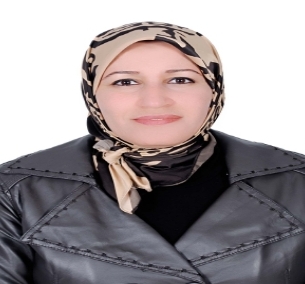ملخص:
إن التعرف على مسار نشأة المجتمع المدني و تطوره التاريخي في الفكر الغربي ليس هدفا في حد ذاته بقدر ما يمثل مقدمة ضرورية لتفهم أسباب شيوع المفهوم في الخطاب السياسي و الثقافي العربي والمغربي خاصة والدلالات الجديدة التي يكتسيها. إذ تكمن الغاية الأولى من ذلك في توفير أرضية لاستيعاب سياق نشأة المجتمع المدني بالمغرب و جعله كمتغير من متغيرات التغيير السياسي والإصلاح بعدما تراجعت الأحزاب السياسية عن إحداث مهام التغيير الديمقراطي، حيث احتل موقعا متقدما في المجال العام من خلال انخراطه في رسم السياسات و تنفيذها بعد المكاسب التي حققها من خلال دستور 2011.
إن الظروف التي أنجبت المجتمع المدني في المغرب ليست تلك التي أنجبته في أوروبا نظرا لاختلاف الظروف الاقتصادية والاجتماعية والسياسية المميزة لكل بيئة، ومن خلال قراءة بعض الأدبيات السياسية التي تناولت موضوع المجتمع المدني في المغرب خاصة والمجتمعات التي تعاني مشكل غياب الديمقراطية وكبث للحريات العامة، تطرح مسألة وجود المجتمع المدني من عدمه الذي أصبح متجاوز حيث أصبح تركيز الحديث و النقاش على مدى فعاليته و دينامية مكوناته و عمق الأطروحات التي يعالجها وافاقه المستقبلية، خاصة بعد أن قطع أشواطا في مجال العمل المدني و أصبح يحتل مكانة حاسمة في الخطابات الرسمية للدول. عموما يمكن التأكيد على أن المجتمع المدني كان دوما أحد المكونات الرئيسية الفاعلة داخل المجتمع المغربي فأشكاله و أساليبه عرفت تغيرات متكررة ومستمرة، حيث كانت تتأقلم مع العوامل الداخلية و الخارجي، و كانت درجة تأثيره تتفاوت بحسب وثيرة العلاقة مع الفاعل السياسي، التي تظل تحكمها المزاجية و التأرجح بين الإشراك و الإقصاء.
الكلمات المفاتيح:
المجتمع المدني- النشأة- التطور التاريخي- نظرية العقد الاجتماعي- الديموقراطية.
Summary:
Knowing The path of civil society genesis in Morocco and its historical development in Western thought is not a goal in itself as much as it represents a necessary introduction to understanding the reasons for the prevalence of the concept in the Arab political and cultural discourse in general and in Moroccan discourse in particular, together with the new connotations that it acquires. The major goal is to provide a platform to accommodate the context of the emergence of civil society in Morocco and make it one of the variables of political change and reform. In this regard, the political parties retreated from the tasks of democratic change which occupied an advanced position in the public sphere through its involvement in policy formulation and implementation based on the gains achieved through the 2011 constitution.
The conditions that gave birth to civil society in Morocco are not similar to those in Europe due to the different economic, social and political conditions pertaining to each environment. In light of the political literature dealing with the issue of civil society in Morocco in particular, and societies that suffer from the problem of the absence of democracy and the suppression of public liberties in general, the issue of the existence of civil society, which has become outdated, is raised as the current discussion focuses on its effectiveness, the dynamism of its components, the depth of the theses it addresses and its future prospects, especially after it has made strides in the field of civil work and has taken a decisive position in the official discourses of countries. In general, the present article emphasizes that civil society has always been one of the main active components within Moroccan society. Its forms and methods have undergone frequent and continuous changes as they adapt to internal and external factors. Additionally, the degree of its impact varies according to the intensity of the relationship with the political actor, which is governed by moods and the swing between involvement and exclusion.
Keywords: Civil society- origin, historical development- social contract theory- democracy.

حياة فخور
باحثة في القانون العام، جامعة الحسن الأول بسطات، كلية العلوم القانونية و السياسية- سطات. عضو المكتب التنفيذي للمرصد المغربي للدراسات و الأبحاث حول المجتمع المدني و الديمقراطية التشاركية.
Is a researcher in public Law, Hassan I University of Settat, Faculty of Legal and political Sciences – Settat. Member of the Executive Office of the Moroccan Observatory for Studies and Research on Civil Society and Participatory Democracy.
